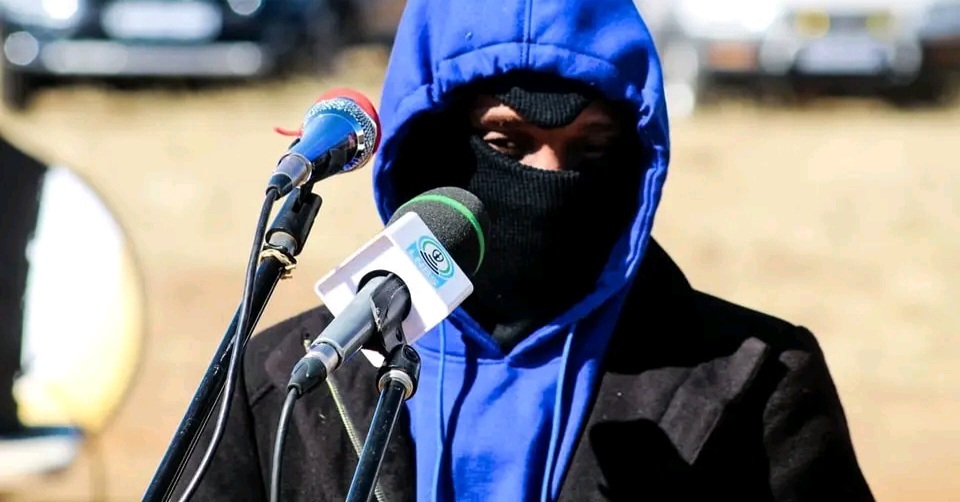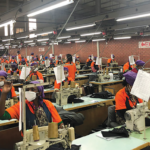Sekete Lesaoana
Beautiful Dream Society (BDS), an anti-human trafficking organisation says it has intercepted human trafficking attempts of 358 victims between March 2021 and December 2022.
The foiled attempts took place in different ports of entry/exit around the country, according to BDS transit monitor, Lipalesa Tlali.
She said 190 persons were saved from the jaws of human trafficking at the Maseru Bridge and the Moshoeshoe I International Airport, while 96 were rescued from Maputsoe Bridge in Leribe.
72 others were saved at Van Rooyen’s Border Gate in Mafeteng, where they were about to be trafficked
January 11 is recognised globally as a human trafficking awareness day and the entire month a human trafficking prevention month, but Tlali said human trafficking continued to be a booming business for traffickers.
“Trafficking in persons does not necessarily peak during the festive season but between January and October when people are desperately searching for jobs,†Tlali said.
“If anyone suspects that something is too good to be true then probably it is so, which is when they should approach us for verification of their job prospects, scholarships, and even relationships as we link with the outside world.
“People are trafficked by prominent people within their communities, some relatives and others family which is what makes it a rough one.â€
In its line of work, BDS aids trafficking victims through a healing and restoration process.
This is done by, among others, transit monitoring, a project that is meant to curb human trafficking atrocities at the borders.
BDS has indicated that a lack of knowledge by the people on what human trafficking entails is one of the challenges.
Norms and culture are also a hindrance where child labour can lead to trafficking in a case where a child labourer is employed yet they do not receive their salary instead, the salary is received by their parents.
According to the 2022 Trafficking in persons report on Lesotho by the United States Department of State, human traffickers exploit domestic and foreign victims in Lesotho, and traffickers exploit victims from Lesotho abroad.
“Traffickers increasingly use social media to identify and recruit victims into forced labour and sex trafficking. Limited economic opportunities, exacerbated by the pandemic, resulted in vulnerable populations, including women and orphaned children, enticed by traffickers with false promises of legitimate employment or educational opportunities, to migrate from rural into urban areas, in South Africa, or the Middle East.
The report said traffickers exploit Basotho children into domestic servitude and animal herding. Traffickers also exploit orphans who migrate to urban areas for sex trafficking.
“Young girls, especially orphans, regularly engaged in domestic work in exchange for room and board; such informal, imbalanced, and private arrangements render these children vulnerable to forced labor and abuse from employers.â€
“There were reports of rampant sexual harassment in Taiwanese-, the People’s Republic of China- (PRC), and South Asian-owned textile factories in Lesotho, including widespread reports that managers and supervisors coerced female workers into sexual relationships in exchange for maintaining employment, receiving better working conditions, and avoiding further sexual harassment. Pandemic-induced layoffs increased vulnerabilities of the predominantly female textile workforce, resulting in some engaging in commercial sex.â€
It also indicated that Basotho women and girls seeking work voluntarily migrate to South Africa, where traffickers detain some in prison-like conditions and exploit them in sex trafficking.
“Traffickers exploit some Basotho men who migrate voluntarily, although unauthorized and often without identity documents, to South Africa for work in agriculture and mining in forced labour; many of these men work for weeks or months before their employers report them to South African authorities for deportation on immigration violations to avoid paying earned wages.
“Traffickers connected to organized crime syndicates operating in South Africa allegedly exploit and sometimes kill Basotho men in derelict and ownerless gold mines. Traffickers also compel Basotho to commit crimes in South Africa, including theft, drug trafficking, and smuggling under threat of violence or through forced drug use.â€
Summary
- January 11 is recognised globally as a human trafficking awareness day and the entire month a human trafficking prevention month, but Tlali said human trafficking continued to be a booming business for traffickers.
- Norms and culture are also a hindrance where child labour can lead to trafficking in a case where a child labourer is employed yet they do not receive their salary instead, the salary is received by their parents.
- According to the 2022 Trafficking in persons report on Lesotho by the United States Department of State, human traffickers exploit domestic and foreign victims in Lesotho, and traffickers exploit victims from Lesotho abroad.

Your Trusted Source for News and Insights in Lesotho!
At Newsday Media, we are passionate about delivering accurate, timely, and engaging news and multimedia content to our diverse audience. Founded with the vision of revolutionizing the media landscape in Lesotho, we have grown into a leading hybrid media company that blends traditional journalism with innovative digital platforms.









